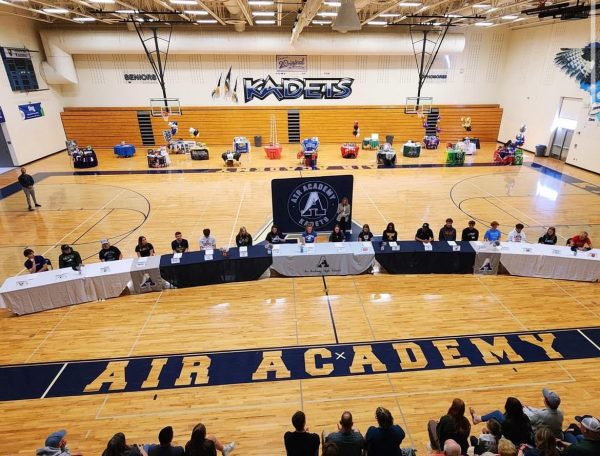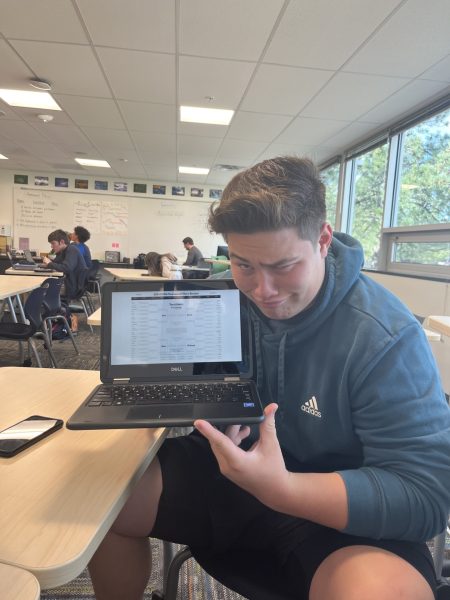The Journal’s Own Caucus

Original photo Jacob Wilkes
Politics are all the rage on every news outlet and will be for the next nine months, but do people actually care about them? March 1st was Super Tuesday, which means the selected states of Alabama, Arkansas, Alaska, Georgia, Massachusetts, Minnesota, Oklahoma, Tennessee, Texas, Vermont, and Virginia were able to vote for Republican candidates, while the selected states of Alabama, Arkansas, Colorado, Georgia, Massachusetts, Minnesota, Oklahoma, Tennessee, Texas, Vermont, and Virginia were able to vote for Democratic candidates.
On the Republican side, the polls showed Donald Trump had an obvious lead, with Ted Cruz coming in second. Trump got 316 delegates, winning Alabama, Arkansas, Georgia, Massachusetts, Tennessee, Vermont, and Virginia. With Trump winning so many southern states, there was a blow to Cruz who believed that these states would help him claim the Republican nomination.
Cruz won 226 delegates, ending behind Trump, as he had done in the entire election thus far. Luckily for Cruz, he won Texas as well as Alaska and Oklahoma. As for Marco Rubio, the only win he had was Minnesota. John Kasich received 25 delegates and Ben Carson got a whopping 8. Neither of the two managed to score any states.
The Democratic primaries and caucuses concluded with Clinton winning 1,034 delegates and Sanders winning 408. Clinton got Alabama, Arkansas, Georgia, Massachusetts, Tennessee, Texas, and Virginia. Which leaves her, once again, ahead of Sanders. Senator Bernie Sanders managed to pull off winning Colorado, Minnesota, Oklahoma, and his home state of Vermont.
This is the third article this edition that discusses the results of Super Tuesday, so in case you didn’t know, this was kind of a big deal. While the real polls and caucuses are vital to figure out who is going to become the party candidates and eventually the next president of the United States, I wanted to see who actually cared about politics and what a classroom caucus would reveal in comparison to the real thing. Another writer from the newspaper, Jacob Wilkes, asked everyone in the class to vote for both a Democratic and Republican candidate. These were the results:
| Republican: | Democratic: | Undecided: |
| Trump- 5 | Clinton- 3 | 2 |
| Rubio- 2 | Sanders- 9 | |
| Cruz- 0 | ||
| Kasich- 3 | ||
| Carson- 2 |
It is important to note a few things about our poll:
-When students did not know who to vote for on the Republican side, Jacob suggested that they might want to just vote for Kasich, which might be why he received such a juxtaposed score in our class poll compared to the real thing.
-Many students in our class believe Ted Cruz was actually the Zodiac killer and that may have affected his results.
-Many of the senior class will be able to vote in the upcoming elections and it is important that they are educated about where their vote is going.

I am the Senior News Editor for The Jetstream Journal. I currently have blue hair and an irrational fear of red vegetables. I'm not involved in any other...








Sebastian Lloret • Mar 16, 2016 at 12:50 pm
It’s important to note that many of Hillary’s current delegates are superdelegates, who often change their vote when it comes time for the actual nomination. And yes, our sample of 26 students is not representative on any level. But it’s interesting.
#Kasich2016
Tali Valentine • Mar 16, 2016 at 10:21 am
Thanks for the great article! I agree, I should probably figure out who I’d actually vote for.